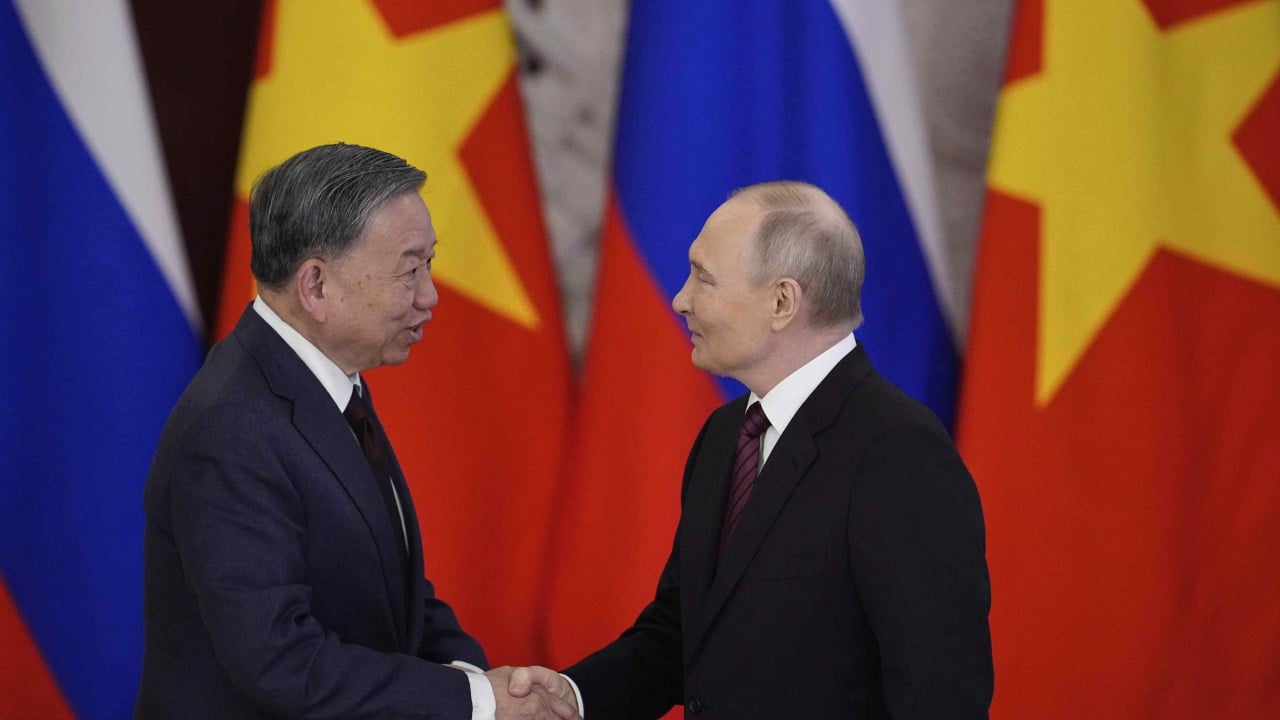While it has China as its main trade partner and the United States as its primary export destination, Vietnam is strengthening its economic, political and military ties with Russia. The country is carefully balancing its relations with all three powers while trying to get the most economic and strategic benefit from each.
Advertisement
Russian President Vladimir Putin’s 2024 visit to Vietnam seems to have been mutually beneficial. On the one hand, it allowed the Kremlin to demonstrate to a Russian audience that, despite being isolated from the West, Russia still has friends in the international arena. On the other, it helped Hanoi secure several energy deals with Moscow that could boost its growing economy.
One year later, the two nations signed another series of cooperation documents – from a natural gas sales contract and a nuclear cooperation road map to agreements in education, culture, health and defence – that underscore the deepening bilateral ties between Russia and Vietnam. In June, Hanoi received its first shipment of Russian liquefied natural gas, while Moscow is expected to increase the supply and refining of crude oil for Vietnam.
More importantly, reports suggest Vietnam is using profits from joint energy projects with Russia to quietly repay Russian weapons loans. Hanoi is reportedly purchasing Russian arms on credit and repaying the loans using profits from its share in Rusvietpetro, a joint oil venture in Siberia. Additional profits are allegedly transferred to Russia’s energy giant Zarubezhneft, which then sends an equivalent amount from its Vietnam-based venture to Vietnam’s state-owned Oil and Gas Group.
If true, this raises an important question. Why does the United States allow Hanoi and the Kremlin to so easily bypass sanctions on Russia and profit from a mutually beneficial energy-arms trade?
Advertisement
Although the US fought a war against Vietnam in the 1960s and 1970s, it no longer views Hanoi as an adversary. Since the US-Vietnam bilateral trade agreement was finalised in 2001, trade between the two countries has grown dramatically. In 2024, their bilateral trade in goods reached nearly US$150 billion.


